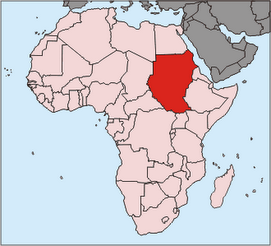
Sudan's Multiple Peace Agreements : The CPA, the DPA and the EPA
ANALYSIS
July 14, 2006
Posted to the web July 14, 2006
By Alex de Waal
By Alex de Waal
This is fourteenth in a series of articles concerning the Darfur Peace Agreement (DPA), explaining what lies behind the long and complicated text of the Agreement. This article situates the DPA in the context of the Naivasha Comprehensive Peace Agreement and the hoped-for Eastern Sudan Peace Agreement ("EPA"), asking the question, how should we now envision the future of the Sudanese nation?
The DPA was negotiated as one part of a step-by-step approach to solving Sudan's problems. In 2004, the Kenyan mediators and the international partners took the decision to make the CPA the priority--in part because they did not anticipate reaching a quick agreement on Darfur and didn't want to keep the North-South peace as a hostage to an intractable conflict in Darfur. At the time, the Darfurian Movements complained that they were being neglected. Then, once the CPA had been signed, the Movements complained that many of their demands were simply ruled unacceptable, because they were not consistent with the CPA. For example, JEM's opening position was that there should be five Regions in Sudan with a Vice President from each one. At that time the SLM wanted a clear separation of religion and politics in Northern Sudan, an issue that the GoS, SPLM and international partners insisted had been settled at Naivasha.
Then, after July 2005, once the CPA and INC were in place, the main political attention switched to negotiating an end to the Darfur war, and many other Sudanese complained that the implementation of the CPA was being forgotten. It is certainly true that the diplomats in Khartoum divided their time and energy between key CPA challenges such as setting up the Assessment and Evaluation Commission and the Abuja negotiations. Important parts of the CPA implementation have lagged behind schedule.
Today, everyone hopes that there will be a settlement to the conflict in eastern Sudan--but that negotiating the "EPA" will not mean that the implementation of the CPA and DPA languish.
The implementation of the DPA will be just as complicated as the CPA. In some ways it is more demanding because of the fragmented situation on the ground in Darfur and the complexity of Darfur's security arrangements. Somehow, Sudan's political leaders and international partners must find a way of focusing both on the specific demands of implementing the DPA (and hopefully the EPA) while also paying attention to the bigger question of how Sudan is to undertake its overall national transformation to democracy, development and security for all. There is a danger of becoming so focused on the details and day-to-day challenges that the big picture is forgotten.
One of the criticisms most widely heard of the AU Mediation in Abuja was that, especially in the DPA's power-sharing chapter, its "compromise" proposals were not really a compromise at all, but were too close to the GoS position. Underlying this criticism is the view that the victims of the conflict in Darfur demand much stronger guarantees for their rights, their political participation and their protection, in the face of a government that is responsible for their suffering--a government that they simply don't trust. This "from the ground up" view is a perfectly legitimate. It is also consistent with the Constitutive Act of the African Union, which is strong on human rights and includes the important principle of intervention in the internal affairs of states when there are severe humanitarian crises and human rights abuses.
There is another framework and logic, which strongly influenced the African Union. Although the AU affirms the right and duty of intervention for humanitarian reasons, it remains an association of states dedicated to preserving stability in the state-based order across Africa. The Constitutive Act commits Member States to constitutional rule and democracy. One of the basic motives for the AU's Chief Mediator was therefore to preserve the CPA and INC as the foundations for Sudan's sovereignty and democratization. He wanted to ensure that the DPA supported the CPA, and did not unravel it.
Relevant Links:
East Africa North Africa Sudan Civil War and Communal Conflict Peacekeeping and Conflict Resolution Post-Conflict Challenges Arms and Military Affairs
The CPA provided a framework for much of the negotiation of the DPA. The basic principles of the CPA include democratic transformation, human rights and political pluralism, fiscal federalism, security sector reform and the downsizing of the national army. At every point, the GoS negotiators--both NCP and SPLM--referred to these principles and insisted that they should not be altered. On this point, the AU agreed with the Government of National Unity. The DPA did not need to go into any detail on democracy because it is all already provided for.
Neither would the DPA have been workable if it had set off conflicts in other parts of Sudan. On this point, Dr Magzoub al Khalifa repeatedly reminded the African Union Mediation that he had obligations to ensure the continued stability of areas such as Kordofan and that any Agreement should not complicate the search for peace in Eastern Sudan. It wouldn't be a true peace agreement if it sparked off a conflict in another part of Sudan. Both Dr Magzoub and the SPLM members of the Government delegation insisted that the delicate and hard-won North-South division of power in the CPA could not be altered in any fundamental way. The AU Mediation was also sympathetic to these arguments.
Throughout the Abuja discussions, members of the AU team reminded the Movements that any power sharing formula decided in the DPA would be purely interim--it would last for just three years until the elections are held. "Better to make sure you have effective representation in institutions such as the Population Census Council and the National Elections Commission," they argued, "rather than pushing for a few extra seats today." But where trust is low, people demand assurances today instead of uncertain promises of future gains. The Movements' negotiators were not convinced by the idea of pinning their hopes on future elections--even with promises of generous donor support to change the liberation fronts into civilian political parties.

